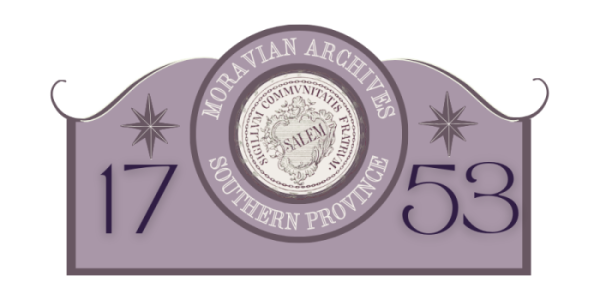Friedberg Moravian Church
“Although at that time a meeting house had not yet been built here in Friedberg,” Maria Elisabeth Spach’s memoir relates, “for her and her husband it was not too much to make a trip of 14 miles, and indeed often on foot, in order to attend the Sunday meetings of the Gemeine in Bethabara.”
That was in the 1750’s, when Wachovia, the land the Moravian Church had purchased, was very much on the frontier, and most of the “roads” of the North Carolina colony were little more than paths through primeval forests.
With such dedication as Maria Elisabeth and her husband Adam Spach had, it was appropriate that the first preaching service the Moravian Church held “below the Ens” — or South Fork — was at their home on Tuesday, November 27, 1759.
It was several years before a meetinghouse was proposed, and several more years before it was built and first used with a lovefeast on March 11, 1769, and consecration of the building the next day. Several South Fork families were organized as a Moravian society on February 4, 1770. A school was begun, and the first Easter service on the graveyard was held that April 15. Three years later, on April 4, 1773, the congregation was formally organized with the name Friedberg — Hill of Peace. Maria Elisabeth and Adam Spach finally had a nearby church.
From its beginning, growth has been a hallmark of Friedberg. A second church was built and consecrated on March 12, 1788, and a third church consecrated on July 28, 1827. This one served through several renovations until it was removed in 1976 for the congregation’s current sanctuary, a handsome 600-seat structure that was dedicated in a week of services January 6-13, 1980.
Growth also came through the Sunday school. The Charity Sunday School was organized on September 30, 1827, and classes were held in the church until a large two-story Sunday school annex was added in 1921. A Christian education building was completed in 1967, and a splendid family life center was dedicated on October 31, 1999. Sunday school also had Friedberg growing beyond its walls, for both Enterprise and Advent Moravian Churches trace their beginnings to being Sunday schools of Friedberg.
